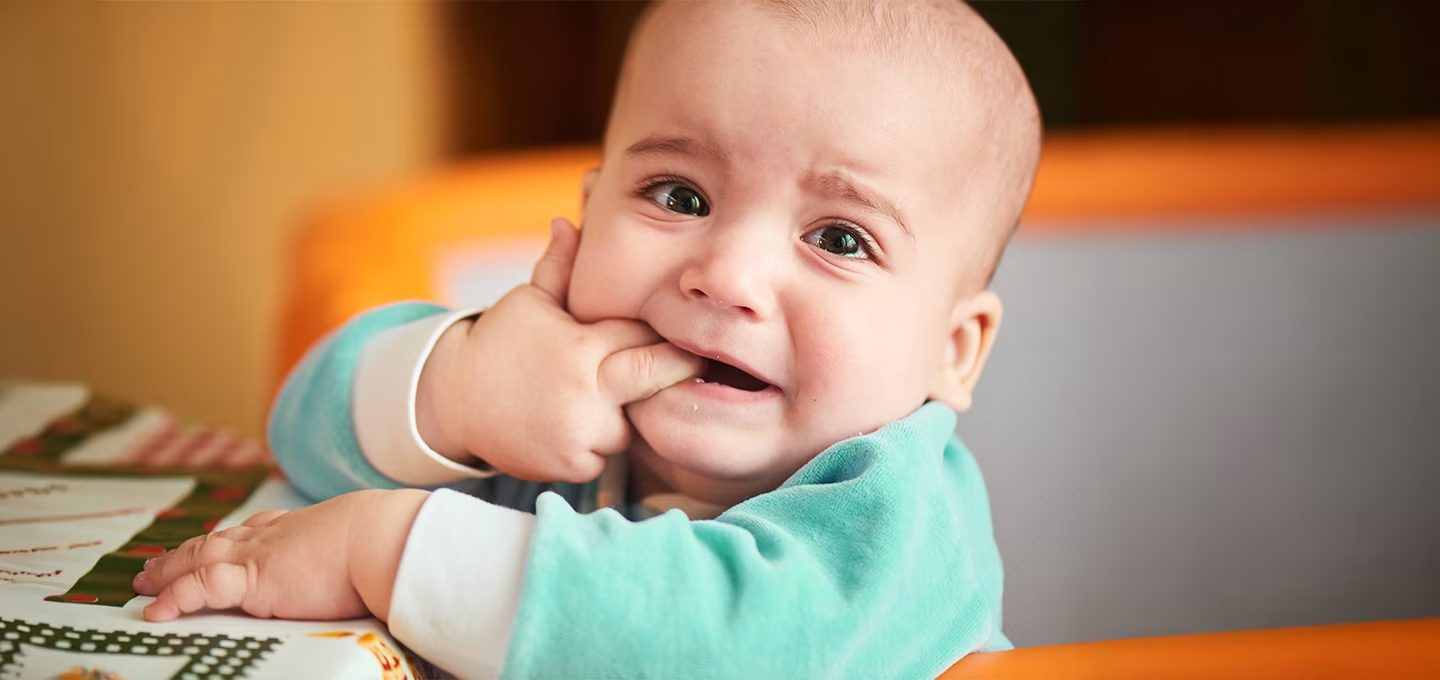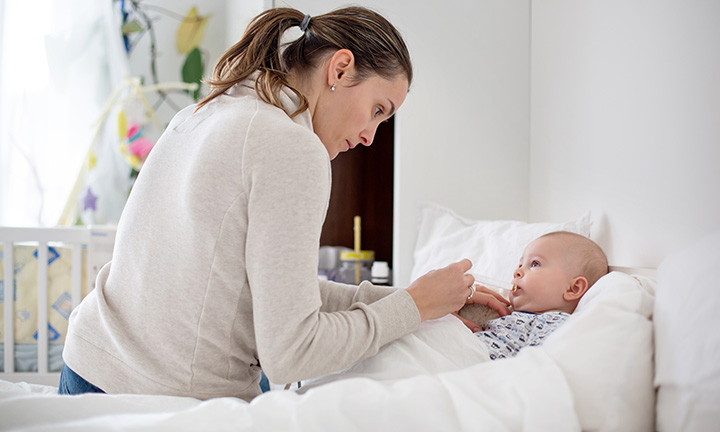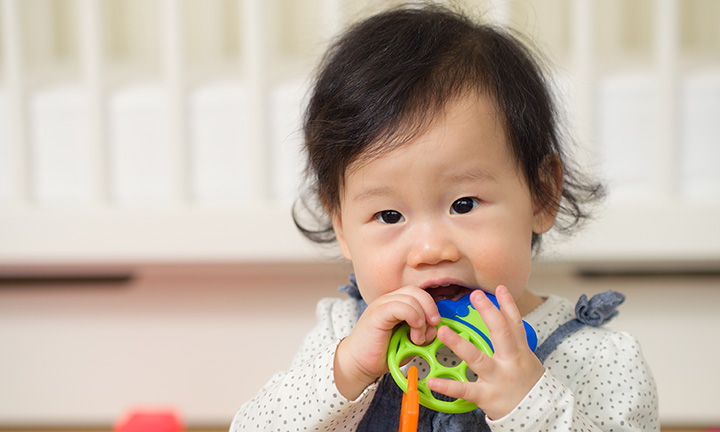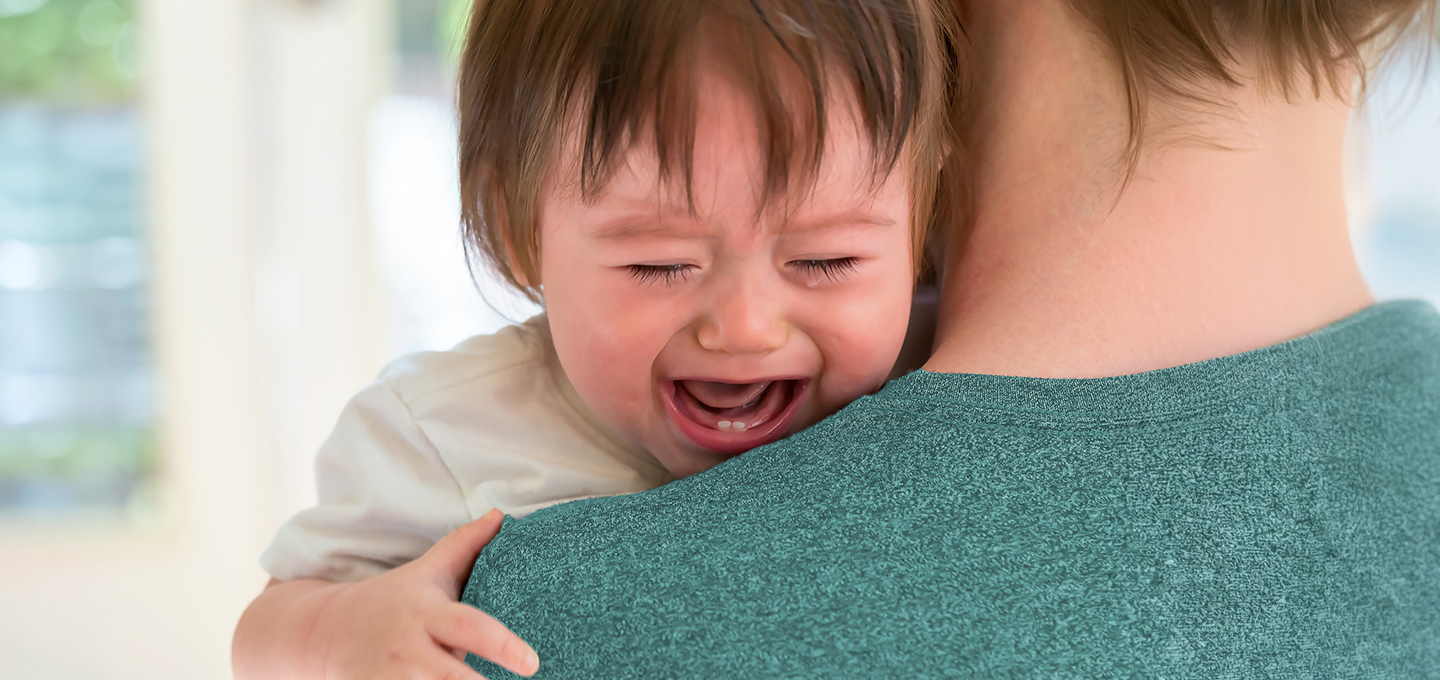
Teething Fever—Can Teething Really Cause a Fever in Babies?
Teething fever is a common concern for parents navigating their baby’s first teeth—but what’s fact and what’s myth? While teething may cause mild symptoms like swollen gums, drooling, fussiness, and a slightly elevated temperature (typically under 100.4°F), it does not cause a true fever. A temperature of 100.4°F or higher usually points to illness, not teething.
Here’s a quick guide to help you distinguish teething from something more serious:
Safe relief methods include gum massage, chilled teething rings, and pediatrician-approved pain relievers. It’s best to avoid teething necklaces and numbing gels, which carry safety risks. Knowing the facts about fever and teething can help you stay calm and respond with confidence.
Key Takeaways
Does Teething Cause Fever?
Many parents ask, “Can teething cause a fever?” It feels like bad timing when your baby’s first tooth appears just as they run a temperature. The good news: there’s no strong medical evidence linking a “true” fever with teething.
While infant teething and fever sometimes appear together, medical experts from Mayo Clinic and the American Academy of Pediatrics (AAP) say teething does not reliably cause a significant fever (a rectal temperature of 100.4 °F / 38 °C or higher).
That means—if your baby has a fever while teething, the most likely cause is an infection or illness, not a tooth pushing through the gum.
Is My Baby Sick or Teething?
So, why do babies get fevers when teething? Teething tends to begin around 4 to 7 months, which often coincides with a baby's first colds, ear infections, or other minor illnesses—all of which may cause fever.
As your baby’s natural immunity from birth fades around 6 months, they become more susceptible to viruses and bacteria. That’s also when their curiosity grows: babies want to chew on everything, increasing their exposure to germs and the likelihood of getting ill and developing a fever.
Keep in mind that the “infant teething fever” confusion may arise simply because these milestones overlap.
Baby teeth eruption continues into toddlerhood, as most children won’t have a complete set of baby teeth until about age 3. So, a “teething fever” at night or otherwise in a toddler is still more likely linked to something else.
Can Babies Get a Low-Grade Fever When Teething?
Some parents report a low-grade fever during teething. While this can happen, it’s usually a mild increase in body temperature—and not a medical fever. Experts advise that teething temperature should not exceed 100°F (37.8°C).
If your baby’s temperature is under 100°F and they’re showing other teething symptoms, such as drooling or swollen gums, it may be due to teething. But, if you’re wondering, “Can a baby get a 103 fever from teething?” the answer is no. A fever this high is more likely caused by an illness.
How Long Does Fever Last While Teething?
Teething does not cause a true fever, so there is no consistent duration for how long a teething-related fever may last. If your baby has a persistent fever, it’s likely caused by something other than teething.
The best approach? Monitor your baby’s symptoms and follow up with your healthcare provider if a fever lasts longer than a day or is accompanied by other signs of illness.
How to Break a Teething Fever
If your baby has a fever (rectal temperature of 100.4°F (38°C) or higher), remember, it’s likely due to illness rather than teething. If it’s related to illness, fever relief might involve:
But if it's only teething, you can usually offer comfort through safe, home remedies—described below.
Get more tips on dealing with fever in babies in our dedicated guide.
Teething Remedies for Babies
Although your baby may not have a true fever due to teething, they may still experience discomfort. Common symptoms of teething include:
For soothing relief, explore our full guide on teething symptoms for babies. You’ll also find gentle remedies like:
As those first teeth start to pop through, it’s also a great time to check in on your little one’s growth. Use our Baby Growth Chart Calculator to track their size and celebrate each new milestone.
When to Contact Your Healthcare Provider
While infant teething and fever may seem connected, it’s important to know when to consult your provider. Contact them if your baby:
You know your baby best. If something feels off, whether your baby is teething or not, it’s always best to seek guidance.
FAQS AT A GLANCE
Although very rare, teething may slightly raise your baby’s temperature. However, teething wouldn’t cause a temperature above 100 degrees Fahrenheit, so a fever related to teething wouldn’t be very high.
The Bottom Line
Teething really doesn’t cause fevers in babies or toddlers. Although your little one could develop a small rise in body temperature (a low-grade fever) when teething, it’s rare. A fever is typically a sign of something else, which could need medical attention. Your healthcare provider is always there to support you through these moments or when you have any questions or concerns.
As you care for your baby through teething and beyond, don’t forget—you can earn Pampers Cash on your Pampers diaper scans with the Pampers Rewards app. Download it today and start earning!
- Cleveland Clinic. Teething Doesn’t Cause Fevers — and Other Myths To Sink Your Teeth Into
- Cleveland Clinic. Teething/Teething Syndrome
- Healthy Children. Fever and Your Baby
- Healthy Children. Teething Pain Relief: How to Soothe Your Baby's Discomfort
- Kids Health. Fever (High Temperature) in Kids
- Mayo Clinic. Teething: Tips for Soothing Gums
Read more about Baby
Join a World of Support
through Pregnancy and Parenthood.
TRACK WITH TOOLS
LEARN WITH EXPERTS
GET REWARDED









